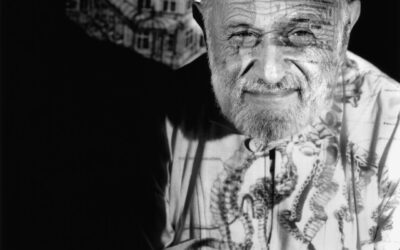Explore how digital technology is revolutionizing human language evolution, creating unprecedented linguistic phenomena while threatening traditional diversity. From platform dialects to emoji grammar, discover what’s next for communication.Retry
Political Psychology: Understanding the Mind in Politics and the Person in Environment

The Intersection of Individual Psychology and Political Environment
Political psychology represents a dynamic field that explores the profound relationships between political and psychological processes, recognizing that human beings exist not in isolation but as persons fundamentally shaped by their environmental context. The International Society of Political Psychology brings together psychologists, political scientists, psychiatrists, historians, sociologists, economists, anthropologists, journalists, government officials and others who understand that political experiences cannot be separated from individual psychological development.
At Taproot Therapy Collective in Birmingham, Alabama, we embrace the critical concept of “person in environment” when addressing the psychological impacts of political stress and trauma. This foundational principle in therapy recognizes that individual mental health exists within the broader context of social, cultural, economic, and political systems. We are the premiere providers of therapy for severe and complex trauma, PTSD, anxiety and depression, offering specialized support for individuals whose psychological wellbeing has been impacted by the increasingly polarized political landscape.
Our depth psychology approach understands that political beliefs, experiences, and traumas are deeply intertwined with personal psychology, family systems, cultural narratives, and the broader environmental context in which individuals develop and function. The person in environment perspective allows us to address not only individual symptoms but also the systemic factors that contribute to political stress and division.
The Psychological Dynamics Behind Political Polarization and Conflict
Understanding the increasing divide between political factions requires examining both individual cognitive processes and the environmental factors that shape political identity formation. Political polarization emerges from complex interactions between personal psychology, social identity needs, and environmental pressures that create and maintain ideological divisions.
Research demonstrates that political polarization operates through affective mechanisms rather than purely ideological ones. Citizens become emotionally invested in their political identities, viewing opposing groups not merely as political opponents but as threats to their fundamental sense of self and community. This affective polarization manifests through increased antipathy toward outgroup members, social avoidance, distrust, and even schadenfreude when political opponents experience setbacks.
The environmental context significantly influences how these psychological processes unfold. Social media algorithms, news consumption patterns, residential sorting, and social network composition all contribute to creating conditions where political polarization can flourish. The person in environment framework helps us understand that individual political attitudes develop within these broader systems that reinforce and amplify existing divisions.
Echo Chambers and Misinformation Spread
The formation of echo chambers represents a psychological phenomenon where individuals seek information and social connections that confirm their existing beliefs while avoiding contradictory evidence. These echo chambers develop through both psychological preferences and environmental structures that facilitate selective exposure to information. Social media platforms, news sources, and social networks often create closed systems where challenging perspectives rarely penetrate.
Misinformation spreads within these echo chambers through several psychological mechanisms. Confirmation bias leads individuals to accept information that supports their preexisting beliefs while rejecting contradictory evidence. Social proof makes false information seem credible when it appears to be widely accepted within one’s reference group. The illusory truth effect causes repeated exposure to false claims to increase their perceived accuracy over time.
Our trauma-informed therapeutic approaches help individuals understand how their environmental context has shaped their political beliefs and reactions. Through EMDR therapy, Brainspotting, and other modalities, we address the psychological wounds that political conflict can create while helping clients develop more adaptive ways of engaging with political differences.
Political Leadership and Decision-Making Psychology
The psychology of political leadership involves understanding how individual personality characteristics interact with environmental pressures to shape decision-making processes. Political leaders operate within complex systems that both constrain and enable their choices, making the person in environment perspective essential for understanding leadership dynamics.
Charisma represents a crucial factor in political leadership, involving the ability to inspire and motivate others through emotional connection and compelling communication. Charismatic leaders often possess strong emotional intelligence, allowing them to read and respond to the psychological needs of their followers. However, charisma can also be manipulated to exploit psychological vulnerabilities, particularly during times of uncertainty or threat.
Narcissism frequently appears in political leaders, manifesting as grandiose self-regard, need for admiration, and lack of empathy for others. While some degree of confidence and self-promotion may be necessary for political success, pathological narcissism can lead to poor decision-making, inability to accept criticism, and exploitation of followers. The environmental context of politics often rewards narcissistic traits while providing few mechanisms for accountability.
Cognitive and emotional factors significantly influence high-stakes political decisions, international negotiations, and crisis management. Decision-making under pressure involves complex interactions between rational analysis and emotional reactions, with environmental stressors often pushing leaders toward quick decisions based on incomplete information. Understanding these psychological processes helps explain why political leaders sometimes make choices that appear irrational from an outside perspective.
Our brain mapping and neurostimulation services can provide insights into how political stress affects cognitive function and decision-making capacity. Understanding the neurobiological impacts of political pressure helps both leaders and citizens develop more realistic expectations and more effective support systems.
The Collective Psyche and Political Movements
Political movements arise from complex interactions between individual psychology and collective dynamics, representing emergent phenomena that cannot be understood through individual analysis alone. The collective psyche encompasses shared emotions, narratives, symbols, and meanings that transcend individual experience while profoundly shaping personal identity and behavior.
Collective emotions play a crucial role in mobilizing political movements and shaping their trajectory. Shared experiences of injustice, hope, fear, or anger create emotional bonds that unite individuals around common causes. These collective emotions often operate below conscious awareness, influencing behavior through embodied responses and intuitive reactions rather than rational deliberation.
Shared narratives provide the cognitive framework through which political movements understand their purpose, identity, and goals. These narratives often involve archetypal themes such as the hero’s journey, the battle between good and evil, or the promise of redemption and transformation. Understanding these narrative structures helps explain why certain political messages resonate deeply while others fail to inspire action.
Archetypal symbols carry powerful psychological energy that can mobilize masses and shape historical events. Flags, slogans, images, and rituals tap into deep psychological patterns that transcend rational analysis. Political movements that successfully harness archetypal energy often create lasting social change, while those that fail to connect with these deeper psychological currents may struggle to maintain momentum.
Lifespan Integration therapy can help individuals understand how their personal history connects with broader political movements and social changes. This approach recognizes that individual identity develops within historical context and that political engagement often reflects deeper psychological needs for meaning, belonging, and purpose.
Strategies for Bridging Divides and Fostering Empathy
Developing effective strategies for bridging political divides requires understanding both the psychological mechanisms that create division and the environmental conditions that can promote connection across difference. Successful bridge-building interventions address multiple levels simultaneously, working with individual psychology while also modifying environmental factors that contribute to polarization.
Perspective-taking exercises help individuals develop empathy by encouraging them to genuinely consider the experiences and viewpoints of those with different political beliefs. These interventions work most effectively when they address not only cognitive understanding but also the emotional and environmental factors that maintain political divisions.
Creating opportunities for meaningful contact between members of different political groups can reduce prejudice and increase mutual understanding, particularly when this contact occurs under conditions of equal status and common goals. Promoting constructive dialogue across political differences requires creating environmental conditions that support genuine communication rather than debate or argument.
The person in environment framework suggests that sustainable bridge-building must address systemic factors that create and maintain political divisions. This includes examining how social media algorithms, news consumption patterns, educational systems, and social institutions either promote division or facilitate connection across difference.
Our family therapy services often work with families whose relationships have been strained by political differences, helping them maintain connection while honoring different perspectives. Internal Family Systems therapy provides particularly powerful tools for understanding how different “parts” of the self may hold conflicting political beliefs or reactions.
Mental Health Impacts of Political Environment in Alabama
The mental health consequences of political stress reflect the complex interaction between individual psychological vulnerabilities and environmental stressors. Political environments characterized by conflict, uncertainty, and division create chronic stress that can overwhelm individual coping resources and lead to significant psychological symptoms.
Political anxiety manifests through various symptoms including sleep disturbances, concentration difficulties, relationship conflicts, and existential despair. These symptoms often reflect realistic responses to threatening political environments rather than individual pathology. The person in environment framework helps distinguish between symptoms that require individual treatment and those that indicate environmental problems requiring systemic intervention.
Political trauma can result from direct experiences of political violence, persecution, or oppression, as well as vicarious exposure to political violence through media or community networks. Understanding political trauma requires examining both individual resilience factors and environmental conditions that create and maintain traumatic stress.
Birmingham, Alabama’s unique cultural and historical context creates specific considerations for political psychology work. The city’s civil rights history, economic transitions, and demographic changes all contribute to a complex political environment that influences individual mental health and political engagement. Our therapeutic approaches honor this local context while providing universal principles for political healing and growth.
Common Political Mental Health Issues We Treat:
Political anxiety and election-related stress that disrupts daily functioning and relationships. Depression related to political powerlessness that often reflects accurate perceptions of environmental constraints rather than individual cognitive distortions. Activist burnout resulting from sustained political engagement without adequate support or self-care. Family conflicts over political differences that threaten important relationships and family stability. Secondary trauma from exposure to political violence or injustice through media or community networks.
Our comprehensive therapeutic approaches address political mental health issues through both individual therapy and attention to environmental factors. Somatic therapies help regulate nervous system responses to political stress, while depth psychology approaches explore the meaning and purpose that individuals find in political engagement.
The Neuroscience of Political Cognition and Environmental Influence
Modern neuroscience reveals how political beliefs and behaviors emerge from complex interactions between brain function and environmental influences. Understanding the neurobiological basis of political cognition helps explain why rational argument often fails to change political attitudes and why environmental context plays such a crucial role in shaping political identity.
Political information processing involves both conscious reasoning and unconscious emotional reactions, with environmental factors significantly influencing which system dominates. Threatening environments activate fight-or-flight responses that narrow attention and promote black-and-white thinking, while safe environments allow for more nuanced analysis and openness to new information.
Neuroplasticity research demonstrates that political attitudes can change throughout the lifespan in response to new experiences and environmental influences. However, this neuroplasticity operates within constraints created by previous experiences, particularly those occurring during sensitive developmental periods.
Our QEEG brain mapping services can identify neurobiological patterns associated with political stress and reactivity. Understanding individual brain function helps develop personalized interventions that work with rather than against neurobiological tendencies while recognizing the environmental factors that influence brain development and function.
Political Psychology Across Development and Environment
Political socialization begins in early childhood through family interactions, community experiences, and broader cultural influences. The person in environment perspective recognizes that political development occurs within nested systems that range from immediate family dynamics to global historical events.
Childhood political learning involves both explicit teaching and implicit modeling, with children absorbing political attitudes through emotional attunement with caregivers rather than rational instruction. Family political discussions, community values, and cultural narratives all contribute to early political identity formation.
Adolescent political development involves the challenging task of integrating family political socialization with peer influences and independent exploration. Our teen therapy services help young people develop authentic political identities while maintaining healthy family relationships.
Adult political psychology involves ongoing interactions between established political identities and changing environmental circumstances. Major life events, geographic moves, career changes, and historical events can all trigger political attitude change in adults.
Therapeutic Applications in Alabama’s Political Environment
Addressing political stress and trauma in Alabama requires understanding the specific environmental factors that contribute to political mental health issues in this region. Historical experiences of civil rights struggles, economic transitions, religious diversity, and political polarization create unique therapeutic considerations that require both individual and environmental awareness.
Individual therapy for political stress often involves helping clients understand how their personal history intersects with broader political and historical narratives. Narrative therapy approaches help individuals develop empowering stories about their political experiences while recognizing the environmental factors that have shaped their options and opportunities.
Group therapy provides opportunities for individuals with shared political experiences to process trauma and develop collective healing strategies. Environmental factors such as group composition, leadership style, and community context significantly influence the effectiveness of political healing groups.
Our meditation and mindfulness resources offer specific practices for managing political stress, including anxiety relief meditations for political overwhelm, loving-kindness practices for political adversaries, and grounding techniques for staying present amid political chaos.
Podcast Episodes and Expert Discussions
Deepen your understanding of political psychology by tuning into the Taproot Therapy Collective Podcast. Discover episodes featuring interviews with political psychologists, analysts, and thought leaders who offer unique insights into the psychological dimensions of politics within the person in environment framework.
Expert discussions explore how individual psychological needs interact with environmental pressures to create political attitudes and behaviors. These conversations examine the psychological characteristics that influence political leadership, the collective dynamics that drive political movements, and the environmental factors that either promote or inhibit democratic participation.
Podcast episodes address practical questions about managing political stress, maintaining relationships across political differences, and finding meaning and purpose in political engagement. These discussions recognize that political involvement often serves important psychological needs for belonging, purpose, and efficacy while also creating potential risks for mental health and relationships.
Building Resilience and Hope in Political Environments
Developing resilience in challenging political environments requires both individual psychological resources and supportive environmental conditions. The person in environment framework guides resilience-building efforts toward creating sustainable change that addresses both personal coping strategies and environmental factors that promote wellbeing.
Individual resilience involves developing psychological skills such as emotional regulation, critical thinking, empathy, and meaning-making that support healthy political engagement. Environmental resilience involves creating communities, institutions, and social networks that support democratic participation while protecting individuals from political stress and trauma.
Hope emerges from the realistic assessment of both challenges and opportunities within current environmental conditions, combined with individual and collective agency to create positive change. Therapeutic approaches that build hope recognize both the genuine environmental constraints people face and their capacity for meaningful action within those constraints.
By understanding the psychological forces at work in the political arena, we gain valuable insights into the challenges and opportunities facing our societies. Join us in exploring political psychology as we strive to foster a more informed, empathetic, and solutions-oriented approach to the pressing political issues of our time.
Ready to Address Political Stress in Your Life?
If you’re struggling with political anxiety, family conflicts over politics, activist burnout, or other political mental health concerns, our experienced team is here to help. We understand that political experiences profoundly impact mental health and offer specialized approaches that honor both individual psychology and environmental context.
📍 Visit Taproot Therapy Collective at
2025 Shady Crest Dr. Suite 203, Hoover, AL 35216
📞 (205) 598-6471
🌐 Web: GetTherapyBirmingham.com
🎧 Podcast: gettherapybirmingham.podbean.com
Serving Birmingham, Alabama, and surrounding communities with compassionate, trauma-informed care for political stress and related mental health concerns.
The Psychology of Economics: A Depth Psychological Exploration of How Money Shapes Mind and Body
Jungian Therapy and Depth Psychology, Psychology of Politics
The intersection of psychology and economics reveals territories that neither discipline alone can adequately map. While behavioral economics has made strides in recognizing that humans are not purely rational economic actors, it barely scratches the surface of how deeply economic systems penetrate our psychological and somatic existence. Through the lens of depth psychology, particularly Jung's analytical psychology and contemporary trauma theory, we discover that economic structures don't merely influence...
The Somatic Cost of Capital: How Economic Systems Live in Bodies
Psychology, Psychology of Politics
The body keeps score not only of personal trauma but of economic violence, carrying in its tissues and nervous system the accumulated impact of life under various forms of capitalism. Each economic system inscribes itself somatically, creating characteristic holding patterns, chronic activation states, and embodied defenses that reveal themselves in clinical practice. When we examine how economic pressures manifest somatically, we discover that capitalism literally lives in our bodies, shaping our musculature,...
Archetypal Economics: Gods of the Marketplace
Economic systems are never merely mechanical arrangements of exchange and production; they are theological structures that embody and activate specific archetypal patterns in the collective psyche. Each economic theory and practice constellates around archetypal cores that shape not only material relations but the very structure of consciousness within that system. When we examine economics through the lens of archetypal psychology, we discover that what presents itself as rational economic science is actually a...
The Wounded Healer as Entrepreneur: Trauma as Economic Driver
Jungian Therapy and Depth Psychology, Psychology of Media and Culture, Psychology of Politics
The archetype of the wounded healer, first articulated by Jung and later elaborated by scholars like Henri Nouwen, finds peculiar expression in the modern entrepreneurial landscape where personal trauma increasingly becomes the seedbed for business ventures. Across the contemporary economy, particularly in wellness, coaching, and personal development industries, we witness a massive transformation of wounds into wealth, trauma into trade. This phenomenon extends far beyond simple capitalism; it represents a...
The Alchemical Marketplace: Prima Materia to Gold in Consumer Psychology
Psychology of Politics, Trauma, Depth Psychology, and Social Work
The marketplace has always been a site of transformation, but under capitalism, it has become an alchemical laboratory where base matter undergoes psychological transmutation into objects of desire. Jung's lifelong fascination with alchemy was not mere historical curiosity but recognition that alchemical symbolism encoded profound psychological truths about transformation processes. When we examine modern consumer psychology through this alchemical lens, we discover that marketing and branding serve as...
Trauma Bonding with Capital: Stockholm Syndrome in Capitalism
Psychology of Conspiracy Theories, Psychology of Media and Culture, Psychology of Politics
The relationship between individuals and economic systems under capitalism exhibits patterns disturbingly reminiscent of trauma bonding, that psychological phenomenon where victims develop emotional attachments to their abusers. This is not metaphorical flourish but rather a precise description of the psychological dynamics at play when human beings form identificatory relationships with economic structures that systematically undermine their wellbeing. The research on trauma bonding from the National Center for...
The Shadow Economy: Collective Repression and Financial Systems
Psychology of Conspiracy Theories, Psychology of Media and Culture, Psychology of Politics
The architecture of our economic systems reveals far more than the movement of capital and commodities. Beneath the rational veneer of market mechanics lies a profound psychological infrastructure, one that Jung would recognize as the manifestation of collective shadow material projected onto the seemingly objective realm of finance. Our economic structures, far from being neutral mathematical constructs, serve as vast repositories for the repressed aspects of the collective psyche, creating what we might call a...
Disenfranchised Grief: When No One Understands Your Loss”
Psychology, Psychology of Politics, Psychology Topics and Articles
You're grieving, but there's no funeral. No sympathy cards. No casserole dishes from concerned neighbors. No one asking how you're doing. Because according to society, what you lost doesn't count. Your pain isn't real grief. You should be over it by now. It was "just" a dog. "Just" a miscarriage. "Just" a job. "Just" a friendship. "Just" your health. "Just" a dream that died. Welcome to therapy for disenfranchised grief – the grief that society doesn't recognize, validate, or support. The grief you're expected to...
The Machine as False God: Lewis Mumford’s Pentagon of Power and the Crisis of Contemporary Psychotherapy
Psychology of Politics, Psychology Topics and Articles
In 1970, Lewis Mumford published the second volume of "The Myth of the Machine," titled "The Pentagon of Power." Writing at the apex of American technocratic confidence, the year after the moon landing, at the height of the Vietnam War, amidst the birth pangs of the computer age, Mumford offered a prophecy disguised as history. He warned that humanity stood at a crossroads: we could either reassert our full humanity against the totalizing logic of what he called the "megamachine," or we would be absorbed into it,...
The Weaponization of Collective Trauma: Understanding Digital-Age Psychological Manipulation
Psychology of Media and Culture, Psychology of Politics, Psychology Topics and Articles
How Modern Data Mining and Microtargeting Exploit Our Deepest Wounds A Clinical Perspective on the Intersection of Trauma, Technology, and Political Manipulation In the therapy room, we witness daily how trauma shapes perception, decision-making, and emotional regulation. We understand that unresolved wounds create vulnerabilities—moments where the past hijacks the present, where fear overrides logic, where the body remembers what the mind tries to forget. What we're only beginning to grasp is how these same...
Network (1976): The Prophet of Our Algorithmic Age
Psychology of Film and TV, Psychology of Modernism Post Modernism and the Meta Modern, Psychology of Politics
The Film That Saw Our Future In 1976, screenwriter Paddy Chayefsky and director Sidney Lumet released a film so prescient about the coming media landscape that audiences didn't know whether to laugh or cry. Network wasn't just satire—it was prophecy. Nearly fifty years later, we're living in the world it predicted: a reality where algorithms dictate human worth, where outrage is currency, and where every radical movement becomes content to be monetized. The film arrived at a pivotal moment in American culture....
Understanding Our Political Moment Through Eric Voegelin:
Executive and Physician Burnout, Metamodernism and Deconstruction, Psychology of Politics
A Guide for Immanentizing the Eschaton in Therapy Why a Dead German Philosopher Matters for Your Therapy Practice Picture this: You're sitting with a client who can't stop talking about how "the system is rigged," or maybe they're convinced that if only we could implement the perfect political solution, all our problems would disappear. Sound familiar? Whether it's QAnon believers, market fundamentalists convinced that pure capitalism will save us all, or activists certain that their ideology holds the key to...
Wilhelm Reich’s Analysis of Fascism: Enduring Wisdom and Controversial Reception
Psychology of Politics, Psychotherapy Biographies: Historical Figures in the History of Psychology, Somatic Experiencing In Alabama
Who Was Wilhelm Reich? Wilhelm Reich, a prominent psychoanalyst and philosopher, made significant contributions to the understanding of fascism through his groundbreaking work, "The Mass Psychology of Fascism." Despite the enduring wisdom of his analysis, Reich's ideas faced numerous challenges and controversies during his lifetime. In this article, we will explore Reich's perspective on fascism, the problems with his adoption by both psychoanalysts and communists, and the lasting impact of his work on political...
Exploring Science, Pseudoscience, and the Supernatural: An Interview with Matt Hongoltz-Hetling on The Ghost Lab
Psychology Book Reviews and Non Fiction, Psychology of Politics
Matt Hongoltz-Hetling on The Ghost Lab: Science, Pseudoscience, and the Supernatural Welcome back to the Taproot Therapy Collective podcast! In this episode, we sit down with Matt Hongoltz-Hetling, a Pulitzer Prize finalist and George Polk Award winner, to discuss his latest book, The Ghost Lab, available for preorder and set to release on May 20th. Known for his incisive investigative journalism, Matt delves into the world of paranormal research, exploring its intersections with science, pseudoscience, and...
Vilém Flusser: Philosopher of Communication and Media Theory
Psychology, Psychology of Media and Culture, Psychology of Politics
Vilém Flusser: Philosopher of Simulacra I. Who was Vilém Flusser Vilém Flusser (1920-1991) was a Czech-born philosopher, writer, and media theorist who made significant contributions to the understanding of communication, media, and technology in the late 20th century. Flusser's work, which spans across multiple languages and disciplines, offers a unique perspective on the ways in which media shape human consciousness and culture. His ideas about the impact of photography, digital media, and technical images on...
Jean-Paul Sartre: Existentialism, Freedom, and the Human Condition
Phenomenology and Existential Psychology, Philosophy for Therapists, Psychology of Buildings and Architecture, Psychology of Modernism Post Modernism and the Meta Modern, Psychology of Politics, Psychotherapy Biographies: Historical Figures in the History of Psychology
Who was Jean-Paul Sartre? Jean-Paul Sartre (1905-1980), the renowned French philosopher, novelist, and playwright, stands as one of the most influential thinkers of the 20th century. His philosophical ideas, particularly his conception of existentialism, have had a profound impact on various fields, including psychology, psychotherapy, and our understanding of the human condition. Sartre's emphasis on human freedom, responsibility, and the inherent meaninglessness of existence has challenged traditional notions...
Politics, Trauma, and Psychology… Oh my!
The Psychology of Politics: Exploring Complexes and Trauma Unresolved trauma and psychological complexes influence one's political orientation. Developing and authentic and individual political compass is an important part of adult life. However, many people fail to achieve this stage of development and let their own unconscious vulnerabilities and shame can manifest in political reactions and overreactions. There is no short cut for self-awareness and self-work in fostering a healthier political perspective....


















